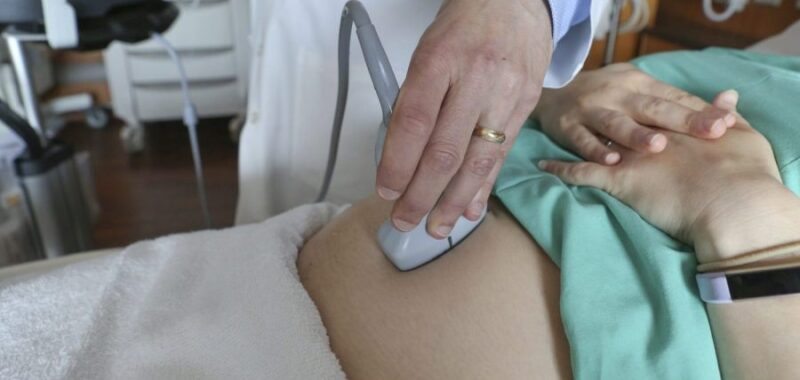
Massachusetts Gov. Maura Healey (D) is running a massive taxpayer-funded public relations campaign to warn citizens about the dangers of pregnancy help clinics. Healy is claiming that this is necessary because people who run these clinics have “a pro-life and religious bias.”
There are some flaws to this thinking. For one thing, approximately half the country has a pro-life bias. And a 2023 Gallup poll says that 82 percent of Americans identify as religious or spiritual.
And when it comes to helping young women facing unexpected pregnancies, politicians should avoid getting themselves on the wrong side of yet another 80/20 issue. Pregnancy help clinics are good for America, especially for politicians committed to defending legal abortion.
It is true — there is a clear and present pro-life and religious bias at work in the nearly 3,000 pregnancy help services operating across the U.S.. This same bias prompted the Rev. John Barlett (1784–1849) to found Mass General Hospital, one of the oldest hospitals in America today. He was a pro-life Christian who wanted to save lives in the name of Jesus. Was he dangerous?
Even now, there are medical professionals working at Mass General who are motivated by a love of life and a Christian worldview. Should we warn people about this?
In fact, nearly all of the hospitals and clinics in the world today that are more than 100 years old were started by people with a pro-life and religious biases. Such bias drove the medical missionary, Dr. Alexander Pearson, to leave the comforts of home and introduce the smallpox vaccine to China in 1805. By 1901, medical missionaries in China were operating 128 hospitals and 245 dispensaries. They recorded 1,674,571 people treated, out of the same bias of Christian care that motivates people to set up pregnancy help clinics and provide testing, ultrasound and practical support for expectant mothers.
I led the effort to establish ultrasound-equipped, medically-staffed pregnancy help centers in the Boston area starting in 1992. As a Baptist pastor in the Boston neighborhood of Dorchester, I heard many tearful testimonies of my people, saying, “I regret my abortion.” As they told me of their lived experience, they also indicated what kind of help, if offered, would have saved their baby. We decided to offer this help.
We started with nothing more than neighborly love and the paradigm of the good Samaritan — draw near and provide practical help. The first to join the effort were those who had their own abortion story. Such people are not judgmental. They are sympathetic and knowledgeable, knowing the stress, the sense of panic and the unclear thinking that attends crisis.
The principle that makes any medical treatment ethical is so foundational that it is called the doctrine of informed consent. The comprehensive abortion training textbook “A Clinician’s Guide to Medical and Surgical Abortion” states that informed consent “must include three elements.” Patients must have the capacity to make decisions; their decisions must be without coercion; and patients must be given appropriate information germane to their decision.
“The goal of the informed consent,” the textbook says, “is to protect individual autonomy by providing information on the procedure, risks, and alternatives to the medical intervention being considered.” And it provides a list of 14 negative after-abortion reactions that must be screened for prior to abortion, including the two I heard most often, “significant ambivalence” and “perceived coercion.”
It is an 80/20 issue that this advice on pre-abortion screening, for negative reactions to abortion, is good for women. Even the National Abortion Federation says so — its logo is stamped right on the cover of “The Clinician’s Guide.”
Abortion advocates can be confident, even thankful, that every woman who seeks an abortion after visiting a pregnancy help center has been informed about the abortion procedures and risks, just as abortion trainers teach. If in the process a mother or couple decides, in spite of difficult circumstances, to have their baby, why not just be glad? Or at least be neutral? Their choice doesn’t alter the legal status of abortion in any way.
Pregnancy help services are spreading worldwide without controversy. In China, a few public hospitals are now offering pregnancy help counseling services and support. In Vietnam, too, hospitals are experimenting with “counseling corners” for women prior to abortion.
In hard places, like Cuba and Uganda, my organization equips doctors with a hand-held ultrasound to help young mothers see their unborn children. Volunteers help new mothers follow their hearts and their true values and give life.
Even abortion doctors welcome the services of pregnancy help clinics, if for no other reason than that they help women who are ambivalent or feeling pressured by others. One such abortion doctor in Romania told me of his deep frustration that he did not have such a clinic nearby. “Some women are weeping and shaking when I start the process,” he said. “I welcome you to open a [clinic] next to me. I would send these women to you to sort out.”
John Ensor is a speaker, author, and president of PassionLife.

